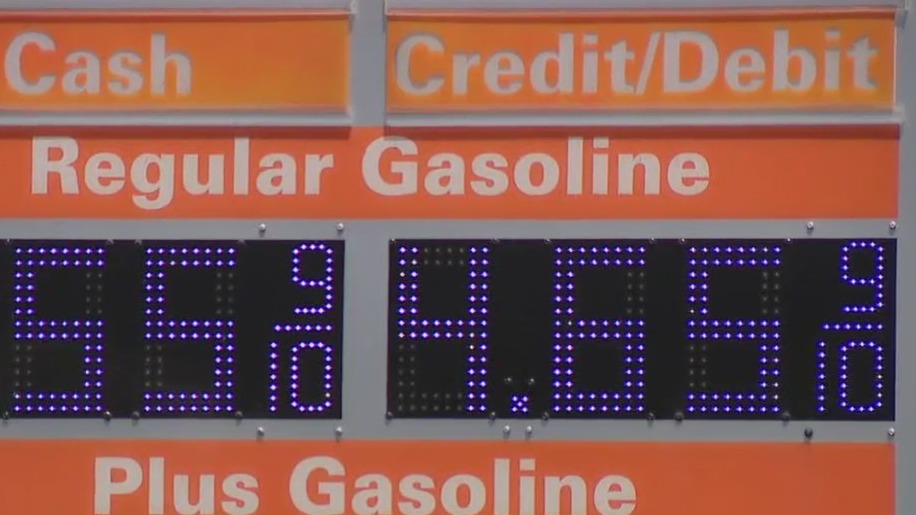California gas prices see slight increase — here's a look at Bay Area figures

Taxes up on a gallon of gas, could bigger hikes be in store?
July 1st brought a tax increase to a gallon of gas but some say California's efforts to reduce carbon emissions from fuel production could cause big spikes in the future.
SAN JOSE, Calif. - With the July 4 holiday travel season here, motorists might have noticed a slight increase in fuel prices.
However, the long-term impact of California's tightening environmental policies on gas prices remains uncertain.
On Tuesday, the state excise tax on each gallon of gas increased by 1.6 cents due to inflation. *California’s aggressive carbon fuel reduction efforts may or may not lead to a larger hike.
Motorist Miguel Valencia put $50 into his SUV, and the tank was only half full. Valencia said higher gas prices make him reconsider his driving habits.
"It affects my day-to-day life because it stops me from going places that I would want to go to," Valencia said. "Sometimes I have to cut back on my spending to go to a certain place."
The state’s collection on each gallon of gas has risen slightly. But with crude oil prices currently dropping, that tax increase might not be noticeable yet.
Bay Area gas prices
Dig deeper:
Around the Bay Area, San Francisco has the highest average price at $4.82 per gallon, followed by San Mateo County at $4.76. Alameda and Contra Costa counties are even at $4.67, with a gallon checking in at $4.62 in Santa Clara County, according to AAA.
Featured
July 4th fireworks in the San Francisco Bay Area: What you need to know in 2025
With July 4th just around the corner, Bay Area cities are prepping for festivities, including parades and fireworks shows. Here's what to know,
The larger uncertainty lies with the "low carbon fuel standard," or "LCFS."
"It is a regulatory program that California adopted in 2009 to try to curb global warming," according to Patrick De Haan, the head of petroleum analysis at GasBuddy. "The LCFS mandates a gradual decrease in the carbon intensity of transportation fuels in the state."
Some detractors of the program claim it could increase the price of a gallon by as much as 65 cents, as refineries may need to buy more carbon credits, an expense that could ultimately be passed on to consumers.
Gov. Gavin Newsom pushed back on Tuesday against that notion, posting on X that gas prices are actually lower now than they were a year ago.
As for the eventual impact of the LCFS, De Haan said nobody really knows.
"There are a lot of politicians who get very creative with math in order to sell something or to sell a plan against it. So there are a lot of nefarious agendas going on in the background creating these numbers," De Haan said,
Cab driver Ted La said he appreciates California’s environmental stewardship but not at the expense of threatening his livelihood.
"Just yesterday (someone) told me that the Democrats are behind this when they are supposed to support us, who vote for them," La said.
For the July 4 holiday, the good news is that prices are generally lower than they were a year ago, but predictions about the future trajectory of gas prices are difficult to come by.


